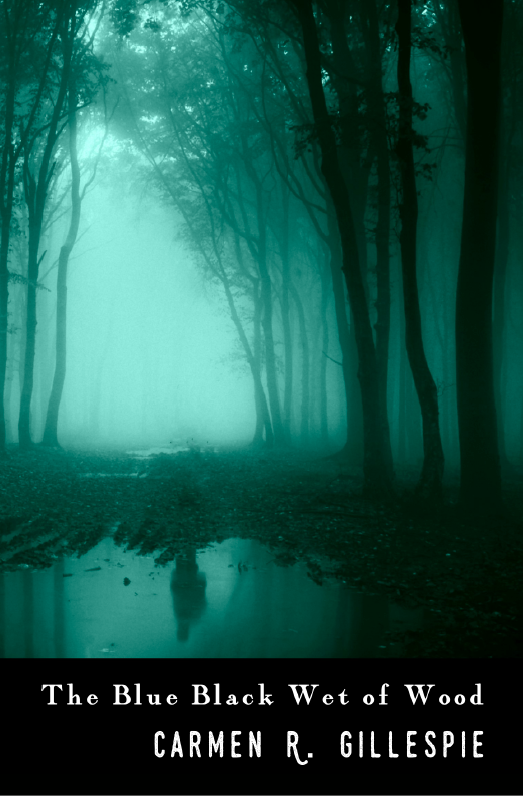- Two Sylvias Store
- >
- Poetry
- >
- The Blue Black Wet of Wood (price includes shipping)
The Blue Black Wet of Wood (price includes shipping)
FOR INTERNATIONAL ORDERS (Canada included): Please email Two Sylvias Press ([email protected]) listing the item(s) you would like to order and quantity. We will send you an invoice with the international shipping amount.
*by Carmen R. Gillespie (Two Sylvias Press, 2016)
Winner of 2015 Two Sylvias Press Wilder Series Poetry Book Prize
Praise for The Blue Black Wet of Wood:
Unflinching in its exquisite poignancy, concentric as a Russian nesting doll, Carmen Gillespie’s The Blue Black Wet of Wood, chronicles the myriad losses within the greater loss of her husband. Dazzlingly intelligent in its circling back through her life, and the life of her family, Blue Black explores the refocusing of the world through the shattered lens of grief and recollection, elegance and hardship. Gillespie’s mastery of craft—evident in her blending of forms, both traditional and experimental—serves as the alchemy that transmutes her loss into brilliant lyric intensity.
--Indigo Moor, author of Through the Stonecutter’s Window, Tap-Root
Drawing on myths ranging from Mayan prophecy (“If there was warning, I didn’t see it”) and Buddhist thought (“This will also change”) to Ovidian metamorphoses, Greek and Shakespearean tragedy (Orpheus and Eurydice, Pandora, The Tempest), and the “fall” of Adam and Eve from Paradise, the speaker in Carmen Gillespie’s The Blue Black Wet of Wood finds herself, in the middle-passage of her life’s journey, in a dark wood: the welter of a husband’s unexpected, advanced cancer diagnosis, his precipitous death, and the profound aftermath of that lost love, the wages of which are an almost unfathomably deep, blue-note grief. Wet wood cannot be lit; it smolders. With forthright honesty (“Voices from the hall, / ‘Who’s that black woman with him?’/ ‘I think it’s his wife’”) and tender humor (“Today in the pile, / your gray sock. No madeleine, / but it will suffice”), Gillespie bravely makes her way through the ash and smolder, right to the liminal edge between shock and bereavement, land and sea, wet wood and fire, personal loss and history, to where “the sea seeps through / in waves that remember the determined descent / of drowning slaves” and one can “learn now to love, yes, love, / the letting go.”
--Lisa Russ Spaar, author of Vanitas Rough and Orexia
There is a way these beautifully made poems—sonorous, precise—make us forget the profound sorrow which engines them along. That's not quite right. They make us understand—they model for us—how loss might be made into music. That is hard work. And these poems do that hard work beautifully.
--Ross Gay, author of Bringing the Shovel Down and Catalog of Unabashed Gratitude
The arc of Gillespie’s collection traces elegies for the beloved. The poems are haunted by images of birds and sky at various times of day, of seas and lakes, of the landscape in every season but especially of the fall and especially October. Gillespie’s artful rendering of loss takes root and deepens. Through the poems’ syntax, formal measures, sparseness, and restraint, language itself enacts the way death unmoors us. At the centre of this deeply moving collection is the ‘simple story’ the book re-inhabits. After the loss of the beloved, we are formed out of and from the fact of their absence—“I am. / The space is. / The cracks are.”
--Shara McCallum, author of This Strange Land and Madwoman

